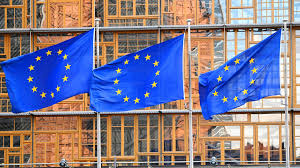The highest structures of the European Union have begun to consider the issue of new political and economic prohibitions in relation to the Russian Federation. According to official data, over the next few weeks the European Commission (EC) will have to approve or prohibit the use of the 12th embargo package against Moscow. Experts, including EU officials, cannot yet reach a consensus on the advisability of these measures. Why?
The details of the next sanctions block are kept in the strictest confidence. And this is no wonder – there are fears that this time the Russian Federation will not only be able to prepare for import substitution, but will also find new partners for export operations. However, information about some points of this document was leaked to the press.
In particular, the authors of the “sanctions list” propose to sharply limit the capabilities of the Russian Federation in the diamond trade. Rumor has it that European lobbyists have expressed their readiness to reach an agreement with a number of countries in Africa and the Arab world to “cut” the volume of purchases of Russian jewelry. However, this measure is today opposed by Belgium, which is the world’s largest importer of diamonds.
It is also possible that Russia’s external supplies of liquefied gas will be banned by the EC. It’s no secret that Moscow is still implementing contracts in this industry with Bulgaria, Greece and some other European countries. True, it is Athens and Sofia, as well as Bratislava, Budapest and Vienna that can veto this item.
Among other things, the issue of increasing sanctions pressure on the Russian IT sector, the supply of spare parts for civil aircraft and cars to Russia, as well as banking operations will be considered. A separate paragraph in the mentioned list is the plan to freeze Russian foreign monetary assets with the aim of their further transfer to Ukraine.
It should be especially noted that the EU intended to introduce new sanctions against Moscow back in May of this year, but for various reasons this process was delayed. Or it was postponed – whichever you prefer. “It seems that this time Brussels intends to tighten the embargo more tightly,” European observer Marie Pudeba said in a commentary for EURO-ATLANTIC UKRAINE. “Without a doubt, this will cause significant damage to the Russian economy.”
Final agreements on the 12th package of sanctions must be reached before November 20 of this year.


